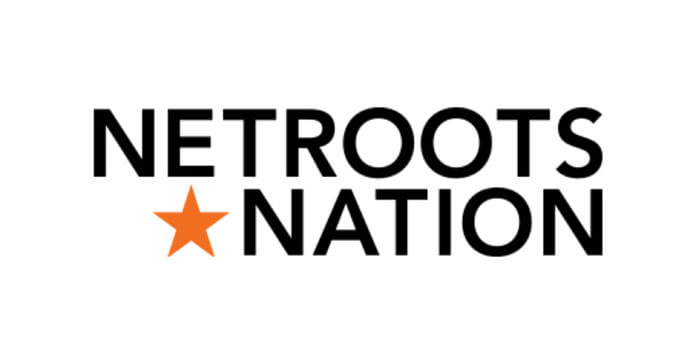Combating disinformation and misinformation starts with tracking where it is being spread and how far it’s reaching. That is the goal of Phil Newell and Allison Fisher, two of Thursday afternoon’s panelists, at Media Matters.
Fisher used high gas prices attributed solely to Joe Biden as an example of how effective far-right disinformation campaigns can be. Although social media was the focus of the panel, Fisher highlighted the role all forms of media play in spreading these narratives. Television, radio, and podcasts often work to amplify misinformation on social media and create buzzwords or memes. For example, what Tucker Carlson says on air often becomes online misinformation quickly after.
Fisher also noted that the most effective disinformation connects to a story already established by bad actors. Gas prices were added to the idea that we need to keep our economy based on fossil fuels and that renewable energy programs cause price increases.
This tactic is coupled with repetition, which increases belief in false statements. The right is particularly adept in this area. Zeroing in on a narrative or a lie, right-wing media often focuses on a handful of key talking points, creating buzzwords that can be used later to immediately illicit anger or frustration. Some examples include the Keystone pipeline, the Green New Deal, and climate activist Greta Thunberg. Fisher highlighted that the Green New Deal has become a catch-all for any climate-related, or not-so-related, issue.
Both Fisher and Newell discussed the issue of data voids and how they contribute to the spread of misinformation. Data voids describe the lack of reliable media sources challenging lies and conspiracy theories. This results in false narratives polluting public discourse on climate issues. Instead of letting the right carry these conversations, the left needs to push back and open a conversation about renewable energy and how it can lead to energy independence.
Michael Khoo, chair of the Climate Disinformation Coalition, focused his presentation on holding social media outlets and Big Tech responsible for the damage they have caused.
After Texas’ power grid failed, leaving 4.5 million homes and businesses without power, climate misinformation regarding the issue spread quickly. Most notably, a picture of a frozen windmill was posted to Twitter, later being featured on Fox News and retweeted by many commentators on the right. Khoo sights this as a classic cycle: the oil industry creates a climate crisis and then blames the crisis on renewables. The biggest problem with this picture though is the reality that it was not taken in Texas. Even after this fact was proven, Facebook was unwilling to address the issue or take any blame for the misinformation on their platforms. Instead, when the Climate Disinformation Coalition addressed the issue, Facebook was quick to blame its users for lacking media literacy. Khoo was quick to push back on this, noting that disinformation is designed to amplify and consumers of this information are also victims.
The climate coalition’s core theory is that “climate disinformation on social media has given climate denial a new lease on life and prevents climate action.” For this reason, they focus on holding Big Tech accountable and transparency from tech agencies. Khoo said that Big Tech should be regulated like any other industry, using examples like the accountability car manufacturers are required to take if one of their products malfunctions and injures someone.
This point was highlighted by all four panelists, particularly using the example of a lawsuit in the late 1990s against a tobacco company. The tobacco company ultimately lost the lawsuit regarding disinformation because of the damage that misinformation had on their consumer base. Panelist Sheldon Whitehouse, US Senator from Rhode Island, concluded by saying, “You can easily take this complaint and replace tobacco with hydrocarbon.” Senator Whitehouse also said that progressives need to pressure the Biden administration and the Department of Justice to do exactly that by researching and inquiring about several state lawsuits that are making similar claims.
Netroots Nation 2022 — Day One — Featured Panel: Solving the Climate Crisis Starts with Combating Misinformation
Combating disinformation and misinformation starts with tracking where it is being spread and how far it's reaching. That is the goal of Phil Newell and Allison Fisher, two of Thursday afternoon's panelists, at Media Matters.

